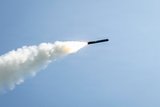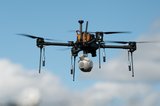Iran blames Yemen war on British
Iran has rejected Western claims that it was arming Huthi rebels in Yemen, saying the conflict was instead the result of British and US arm supplies to Saudi Arabia.
Iran’s foreign ministry spokesman Bahram Ghasemi, said: ‘The Islamic Republic of Iran wants an end to the aggression in Yemen by Saudi Arabia. What is happening in Yemen is the result of the export of British and American weapons to Saudi Arabia and such behaviour is unacceptable.’
A Saudi-led coalition has been bombing Yemen almost daily since 2015 as itattempts to dislodge Huthi rebels who seized control of the capital, in a conflict that has triggered the world's worst humanitarian crisis according to the United Nations.
A UN report in January said Tehran had breached an arms embargo by failing to stop weapons reaching the Huthis.
According to the report, a missile fired into Saudi Arabia in 2017 by the Huthis was made in Iran, though it was unable to definitively identify the supplier.
A UN resolution drafted by Britain called for ‘additional measures’ against Iran over the report.
Ghasemi said: ‘This resolution, if adopted, would provide support to the aggressor. Such resolutions do not help the situation in Yemen and are an effort by the British government to use international mechanisms to create supportive climate for the aggressor.’
Russia, which is allied with Iran in the Syria war, maintains that the UN report's findings are not conclusive enough to justify action against Iran.
It presented a rival resolution on 24 February, extending sanctions on Yemen but without any reference to possible action targeting Tehran.
More from Defence Notes
-
![Is the US magazine of air defence interceptors deep enough to sustain a long campaign against Iran?]()
Is the US magazine of air defence interceptors deep enough to sustain a long campaign against Iran?
The Pentagon spent a considerable number of THAAD and SM-3 rounds to attack Iran in 2025 and has not fully replenished its reserves.
-
![New Zealand buys tri-service uncrewed kit from Syos Aerospace]()
New Zealand buys tri-service uncrewed kit from Syos Aerospace
As uncrewed technology continues to play an increasingly central role in modern military activities, New Zealand’s recent acquisitions point towards its the force’s focus on cost-effective capability.
-
![US Air Force pushes Sentinel’s initial capability to early 2030s despite China’s nuclear progress]()
US Air Force pushes Sentinel’s initial capability to early 2030s despite China’s nuclear progress
While the US struggles to modernise the 50-year-old land leg of its nuclear triad, China has been rapidly developing and fielding new nuclear capabilities.





















